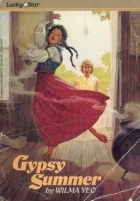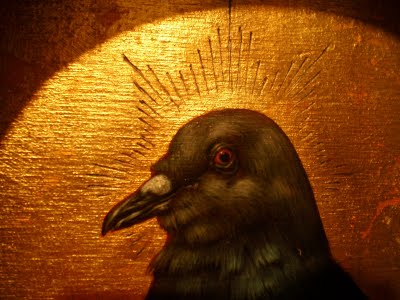- Bread and Honey by Frank Asch
- Squiggly Wiggly’s Surprise by Arnold Shapiro
- Charlotte’s Web by E. B. White
- Gypsy Summer by Wilma Yeo
- Anne of Green Gables by L. M. Montgomery
- Sins of the Father by Eileen Franklin
- The Dangling Man by Saul Bellow
- On the Road by Jack Kerouac
- The Pillow Book by Sei Shonagon
- Blue Like Jazz by Donald Miller
10 Books That Have Stuck with Me
17 DecRoad Trip Writing: On the Road and Through Painted Deserts
16 JulDonald Miller’s New York Times-bestselling book Blue Like Jazz recently was made into an indie film, and I had the opportunity to watch a screening in Times Square before the film was officially released on April 13. I’ve had the immense pleasure of meeting and getting to know some of the “characters” in the book. I was so proud of them! Penny Carothers wrote a beautiful article about her experience going to the premier and seeing an actress play her on the silver screen.
The film was very different than the book. I knew this going into it. The story of this process of turning a collection of essays from Blue Like Jazz into an actual storyline is told in Miller’s A Million Miles in a Thousand Years. There’s a scene in A Million Miles when Don is told that he essentially needs to change his life story for the movie. He says:
“You think they might be bored if we just show my life the way it is,” I clarified. I guess I was asking for reassurance that my life was okay.
From the perspective of a fellow memoirist, I found the process fascinating. I think memoirists, particularly those who are in the process of turning their book into a movie, should consider reading Blue Like Jazz and A Million Miles in a Thousand Years and then watching the film, just to get a sense of process.
After watching the film Blue Like Jazz, I can’t help but wonder what will happen with the film On the Road. After all, both are fictional portrayals of real life. If Blue Like Jazz is any indication, On the Road will be very different than the book. A guy I interned with years ago at the Bowery Poetry Club left a comment recently in response to one of my Facebook posts, saying that Kerouac wasn’t a good storyteller. In a way, I kind of agree with him. On the Road would seemingly make a lot more sense if it was just one big road trip across the United States. Instead, the protagonist, Sal Paradise, barely hits the road before he turns back around. There are multiple trips across the country, and the story can get a bit confusing because of that. Maybe Jack Kerouac was trying too hard to stick to the truth to combine all the trips into one. Then again, maybe he knew what he was doing. There’s something so much more telling about Sal Paradise failing his first attempt at road tripping and then frenetically ping-ponging between his mother’s house and the open road than if it had all happened easily, perfectly. Can the film capture that? Will it try? Will gaining cohesive action and a clear plot lessen the reality, the rawness, the beat-ness of life?
While I do recommend Donald Miller’s A Million Miles in a Thousand Years for an honest look at not just the writing process but the process of living life, the Donald Miller book I’d actually recommend as an example of beautiful storytelling and craft is his first book, which was republished as Through Painted Deserts. This is the book that pays more attention to the way words sound as they roll of the page. It inspires because of its beauty and simplicity, and not because of grand, sweeping gestures and actions.
Through Painted Deserts is Donald Miller’s road trip book. Here’s how the overview reads:
This classic road trip tale will inspire readers of all ages.
Fueled by the belief that something better exists than the mundane life they’ve been living, free spirits Don and Paul set off on an adventure-filled road trip in search of deeper meaning, beauty, and an explanation for life. Many young men dream of such a trip, but few are brave enough to actually attempt it. Fewer still have the writing skills of Donald Miller, who records the trip with wide-eyed honesty in achingly beautiful prose. In this completely revised edition, he discusses everything from the nature of friendship, the reason for pain, and the origins of beauty.
As they travel from Texas to Oregon in Paul’s cantankerous Volkswagen van, the two friends encounter a variety of fascinating people, witness the fullness of nature’s splendor, and learn unexpected lessons about themselves, each other, and even God.
Through Painted Deserts is the modern-day, Protestant version of On the Road. It’s about a young man looking for truth out on the open roads of America.
PS::: You may also like:
my article on Church Hopping with Donald Miller
my article on Church Hopping with Penny Carothers
Writing Wednesday: Who Is the Patron Saint of Your Writing?
23 Mar“Who is the patron saint of your writing?” my lit instructor inquired.
I’m taking a class that looks at how classic works of literature inspire contemporary works. We look, for example, at how Evan S. Connell’s Mrs. Bridge informed Meg Wolitzer’s The Wife. It seems natural that great authors would inspire other great writers to write either in the same style or the same theme. And yet, my instructor’s question has had me thinking for days.
I’ve never thought of my own writing as being inspired by another writer. I don’t try to write like my favorite authors, though I’m sure I must’ve done it subconsciously many times.
In a way, this rejection of sameness is reflective of my life in general. I was the English major in undergrad who hung out with all the premed students. I was the Greek kid in middle school with all the Korean and Japanese friends. It never occurred to me to hang out with people who had my identical interests and culture, and it never occurred to me to try to write like another writer.
Except maybe Gregory Corso.
When I was 22 I wrote an homage to Corso’s “I Am 25.” It was pretty much a rip off of Corso’s poem, but it was meant to be. Corso writes about stealing the poems of Shelley, Chatterton, and Rimbaud, and I more or less swapped out the names of these “old poetmen” for those of Corso, Kerouac, and Ginsberg.
Along those Beat Generation lines, one of my favorite writers is Jack Kerouac. Read these lines from On the Road:
“Soon it got dusk, a grapy dusk, a purple dusk over tangerine groves and long melon fields; the sun the color of pressed grapes, slashed with burgundy red, the fields the color of love and Spanish mysteries.”
“The one thing that we yearn for in our living days, that makes us sigh and groan and undergo sweet nauseas of all kinds, is the remembrance of some lost bliss that was probably experienced in the womb and can only be reproduced (though we hate to admit it) in death.”
It pains me how beautiful these words are. While so much has been made of Kerouac’s subject matter and improvisational style, I find that it is his lyrical descriptions and, yes, the rhythm of his prose that captivate me the most.
I have zig-zagged across the country, visiting places Kerouac visited, and I’ve written short travel articles, but I don’t write road-trip novels. I would like very much to write about America, though. I’ve written about Kerouac, sure, but I haven’t (consciously) attempted to write in his style. I love punctuation rules too much.
I would probably choose Jack Kerouac to be the patron saint of my writing, but in reality, my writing voice comes out more like Sue Monk Kidd or, as my mom has pointed out, Donald Miller and Anna Quindlen.
Others tell me to read David Sedaris. He’s Greek! He writes about his family! And indeed, I do see his humor sometimes creeping into my personal essays. One time, right after reading David Foster Wallace’s Consider the Lobster, I will confess I conjured up his style for an article I wrote, but I fear that was only similar to off-key humming of a song that just played on the radio.
Must I choose just one patron saint?
I admire great writers, and I love to reference them and turn other readers on to them, but I don’t think I could ever choose just one to be my patron saint. I’m way too much of a schizophrenic writer for that.
Who is your patron saint of writing?




